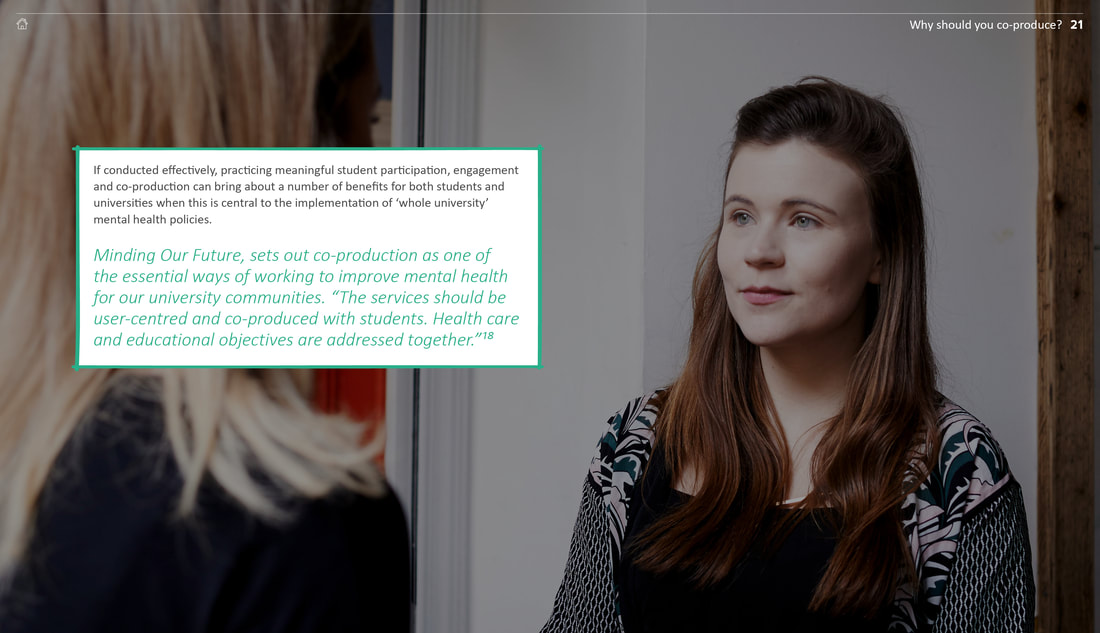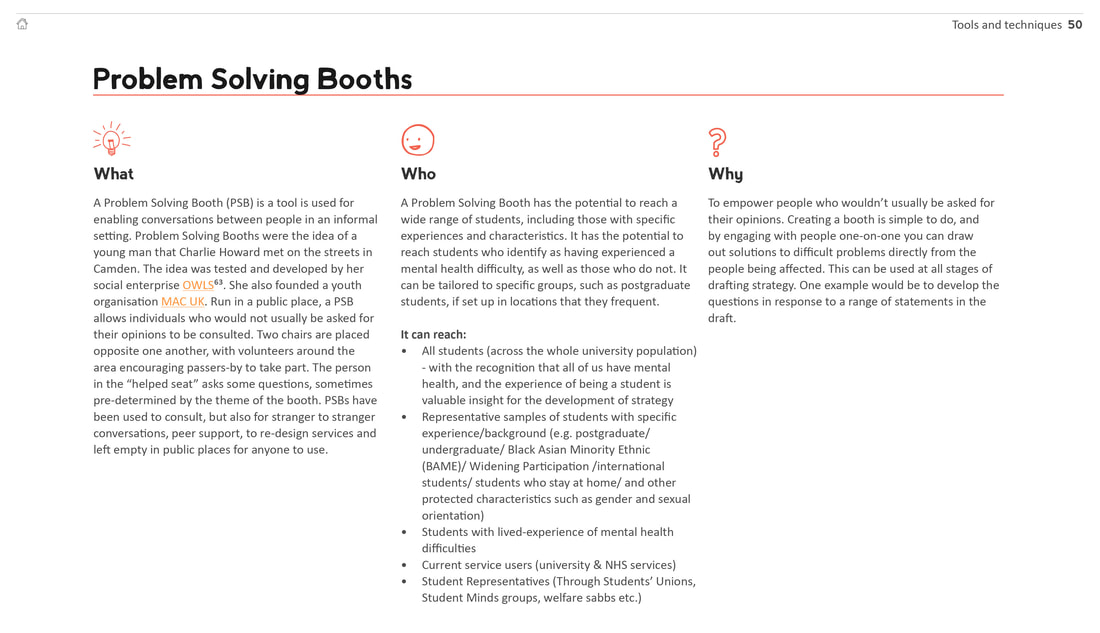Co-producing mental health strategies with students:
A Guide for the Higher Education Sector
Students with lived experience of mental health difficulties are experts by experience.
In order to identify the full range of work necessary to improve mental health and wellbeing at our Higher Education institutions, we must listen to students. Students, both with and without the experience of mental illness, should be part of every stage of developing mental health and wellbeing strategies. This practical toolkit aims to support those leading on strategy development, with the tools to find meaningful and effective solutions with students. Find out how to get started:
In order to identify the full range of work necessary to improve mental health and wellbeing at our Higher Education institutions, we must listen to students. Students, both with and without the experience of mental illness, should be part of every stage of developing mental health and wellbeing strategies. This practical toolkit aims to support those leading on strategy development, with the tools to find meaningful and effective solutions with students. Find out how to get started:
Our guide explores
- Why co-production is so powerful in developing mental health and wellbeing strategies.
- How co-production strategies can lead to improved wellbeing outcomes and wider benefits for both staff and students
- Overcoming barriers to engagement and engaging different groups and communities of students
- A range of tools for leading co-production work at universities
Project Background
Since 2009 Student Minds has delivered a range of student engagement activities across the UK to explore student and staff experiences around their mental health and supporting others. Funded by a successful partnership bid to HEFCE’s (now Office for Students) Catalyst Fund addressing barriers to student success, three universities in the process of developing mental health strategies partnered with Student Minds and UUK to explore the process of developing a university-wide approach to mental health, and to develop tools and learning of use to the wider HE sector. Alongside this, UUK is developing a validated mental health and wellbeing audit, and creating a knowledge and practice exchange platform. This particular report is an output of this partnership project, informed by piloting different ideas for co-producing strategy with students at The University of the West of England (UWE Bristol), Cardiff University, and the University of York.
|
Who is this guide for?
This resource is intended to support Higher Education Institutions to make a long term commitment to empower and value students’ experiences as central to the solution to improving mental health at our universities and colleges. The intended audience is those leading on mental health strategy development at universities, senior leadership, Student Union (SU) staff, SU officers, Student Support Service staff, Accommodation management, and other stakeholders in this space. It may also be of use to NHS and third sector staff working with universities on student mental health. In working with external partners such as the NHS, universities can contribute to support students in a way that is embedded in the local offer. In order to do this in a way that meets the needs of students, students must be engaged. |
Have your say:
We want to hear your experiences - please share your work with us at [email protected] If you are interested in this report in the context of working in or with a Students’ Union - please contact [email protected] for further information on our developing Students’ Union Support Programme. |



